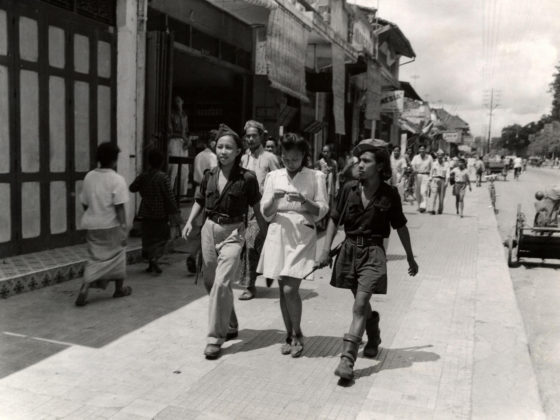Anger at Rijksmuseum as colonial term is dropped from exhibition


The Rijksmuseum’s decision to drop the term ‘Bersiap’ from an exhibition on the Indonesian uprising after the Second World War because of its ‘strong racist connotations’ has sparked a backlash from veterans of the colonial period.
Bonnie Triyana, an Indonesian historian who was invited by the museum to curate the exhibition, said the term was used in Dutch to describe ‘primitive uncivilised Indonesians as perpetrators of violent acts’ and was ‘not completely free of racial hatred’.
The exhibition, ‘Revolusi!’, which opens next month, focuses on the personal stories of those involved in the bitter and bloody decolonisation years from 1945 to 1950.
‘The root of the problem lies in the injustice that created colonialism and the structure of a hierarchical society based on racism that surrounded the exploitation of the colony,’ Triyana wrote in an opinion piece for NRC.
Bersiap, which means ‘stand ready’ in Indonesian, is more commonly used in Dutch to refer to the violent uprisings against Dutch settlers after the end of the Japanese occupation in 1945.
The subsequent counter-offensive by Dutch troops between 1947 and the 1949 ceasefire, during which around 100,000 people died, is known in Dutch as the politionele acties – literally ‘police actions’ – but in Indonesian as Agresi Militer Belanda or ‘Dutch military aggression’.
Censorship
The Federation of Dutch Indos (FIN) accused the museum of censorship and falsifying history and said it was filing a formal complaint against the curator.
Many of those who were killed in the uprising had just been freed from prisoner-of-war camps when Indonesia’s nationalist leader Sukarno declared independence on August 17, 1945, two days after the Japanese surrender.
Spokesman Micha’el Lentze said: ‘This is nothing more than a denial of a period in which Indonesians took part in racist persecution, torture and rape.
‘Even the victims are having to bow to Indonesian propaganda. People who were guilty of nothing were slaughtered in brutal ways.’
Rijksmuseum director Taco Dibbits said the exhibition’s focus was the personal experiences of people who were ‘caught up in a large conflict’ rather than issues of colonial guilt or shame. Part of the exhibition tells the story of an Indo-European family that were victims of the Indonesian uprising.
But right-wing politicians denounced the decision not to use Bersiap as evidence that the museum had succumbed to a ‘woke’ agenda. Annabel Nanninga, senate leader for the JA21 party and a former Forum voor Democratie councillor in Amsterdam, called the ‘history falsifying (and, of course, partly subsidised) nonsense downright ludicrous’.
Thank you for donating to DutchNews.nl.
We could not provide the Dutch News service, and keep it free of charge, without the generous support of our readers. Your donations allow us to report on issues you tell us matter, and provide you with a summary of the most important Dutch news each day.
Make a donation